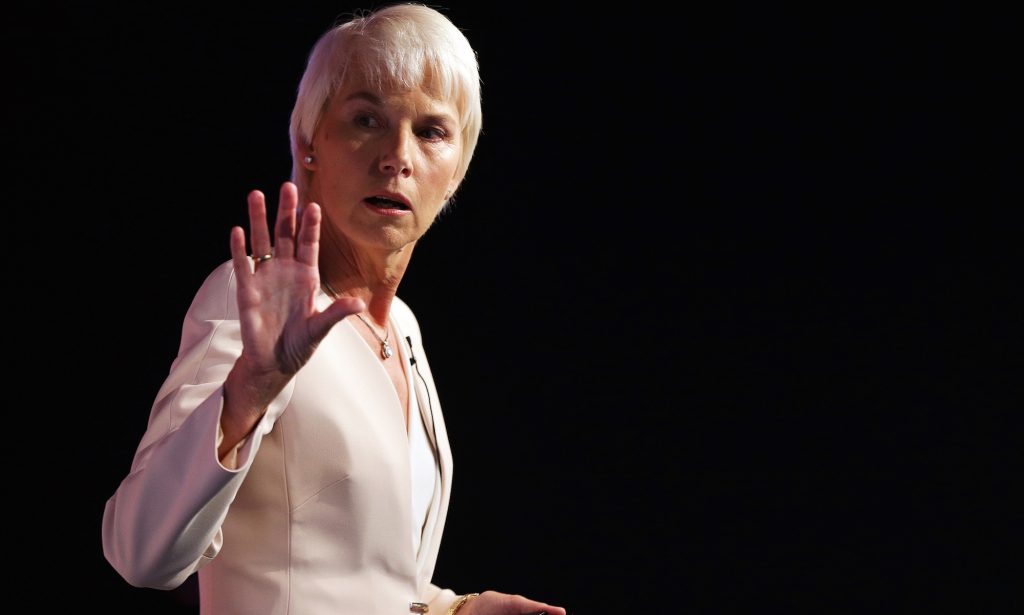
Statements by ex-Westpac CEO Gail Kelly at a CARE fundraising event in Melbourne have caused a minor firestorm here in Vanuatu. On July 28th, Ms Kelly provided a litany of examples of sexual abuse, violence and subjugation of women in Vanuatu, which she characterised as “staggering,” according to the Guardian Australia.
The response in Vanuatu was outrage.
Men and (to a much lesser degree) women alike castigated Ms Kelly, claiming that she was uninformed, that she had no insight into traditional values and was grossly misrepresenting the situation.
It is true that when such issues are put under the microscope, they look appalling, especially when crime, prejudice and systematic bias are piled up side by side with one another.
That’s because they are appalling.
One of the first and most common reactions was to reject Gail Kelly’s comments because she’s not a Ni Vanuatu. How could she possibly be expected to know a thing about this country, people asked.
Well, rather than presume to tread such murky ground myself, I called up Merelyn Tahi, Director of the Vanuatu Women’s Centre. She hadn’t seen the article yet, and she doesn’t frequent Facebook, but when I began to read the Guardian piece to her, she interrupted me and said, “Have you seen our research? That’s where she got this from, I guess.”
In 2011, the Vanuatu Women’s Centre published the Vanuatu National Survey of Women’s Lives and Family Relationships. The 248-page report was the result of a survey that reached over 3,600 households, including 3,141 questionnaires filled out by both men and women and 2337 by individual women.
The report “reveals an intense web of intimidation, threats, humiliation, controlling behaviour and acts of physical and sexual violence imposed on the women who suffer from violence by their husbands and partners.”
Strong language? Yes, it is. And it’s appropriate to the situation. Here’s a longer excerpt:
“Among women who have ever been married, lived with a man, or had an intimate sexual relationship with a partner, 3 in 5 (60%) experienced physical and/or sexual violence in their lifetime; more than 2 in 3 (68%) experienced emotional violence; more than 1 in 4 (28%) was subjected to several forms of control by their husband or partner, more than 2 in 3 (69%) experienced at least one form of coercive control, and most of these were living with physical and sexual violence.”
It may be the case that Gail Kelly is an opportunistic disaster tourist of the worst sort, carpet-bagging on the backs of Ni Vanuatu. It may be that she will never understand the richness and rootedness of Melanesian life.
But it is a certainty that she is right about the prevalence of gender based violence and abuse in Vanuatu.
I know this for a fact. Others may close there eyes to what Ms Tahi calls this social ‘sickness’, but I cannot.
A single example: In one family of four sisters, 3 have been raped, one of them by a uncle in her own home; all of them have been beaten, one of them so badly she spent months recovering; one has also been bound, tortured and gang-raped by close relations.
All of them are too scared of their own spouses or families to report the crimes to the police.
These women are hardly the only ones. Some time ago, a colleague confided to me that if I asked every single female staffer in our workplace if she had been beaten, the answer would be a unanimous yes.
I was saddened but not surprised to see how Ms Kelly was reviled, sworn at, belittled and threatened for speaking up. If she didn’t know anything about life as a Ni Vanuatu woman before, she sure does now.
